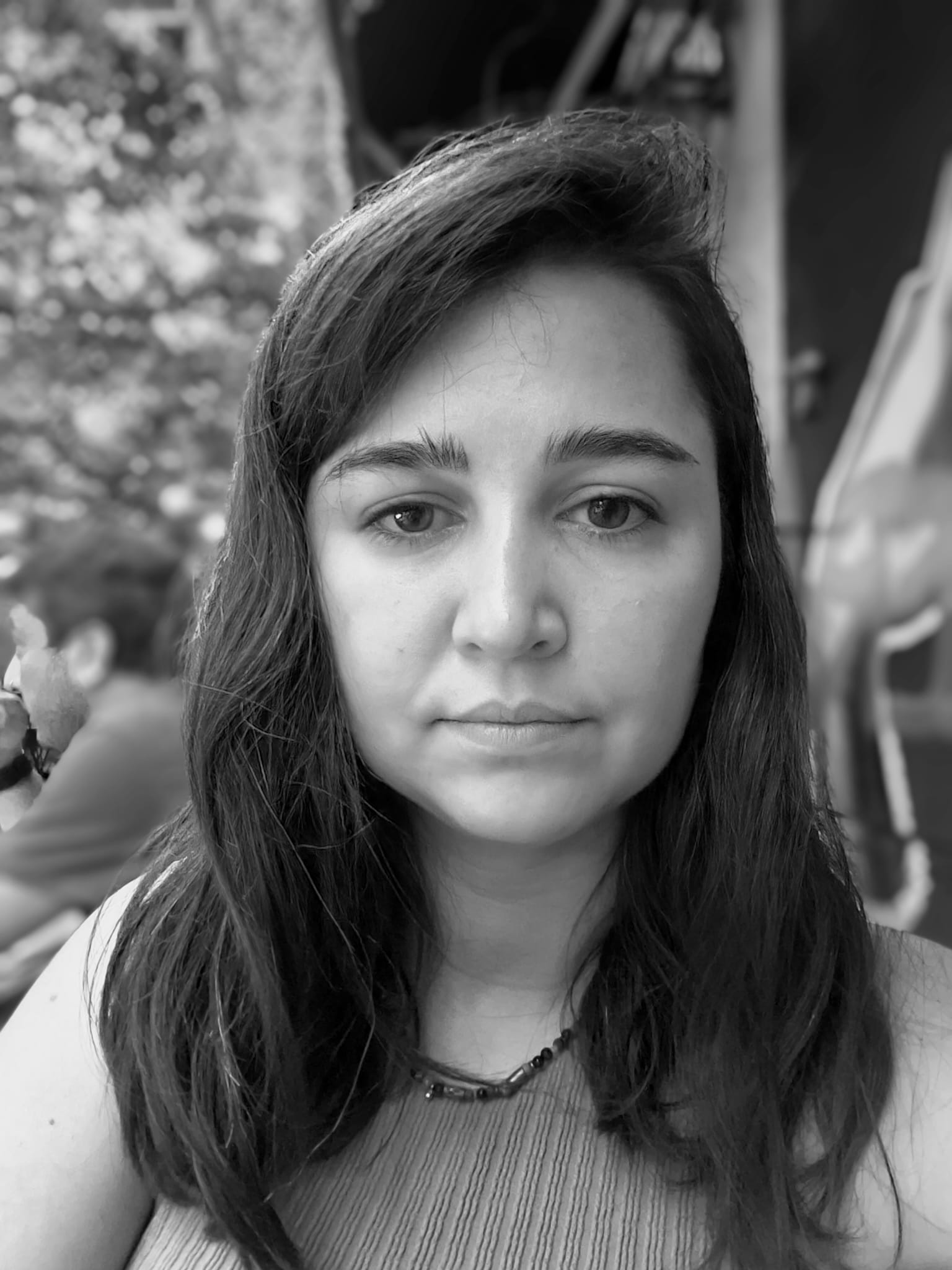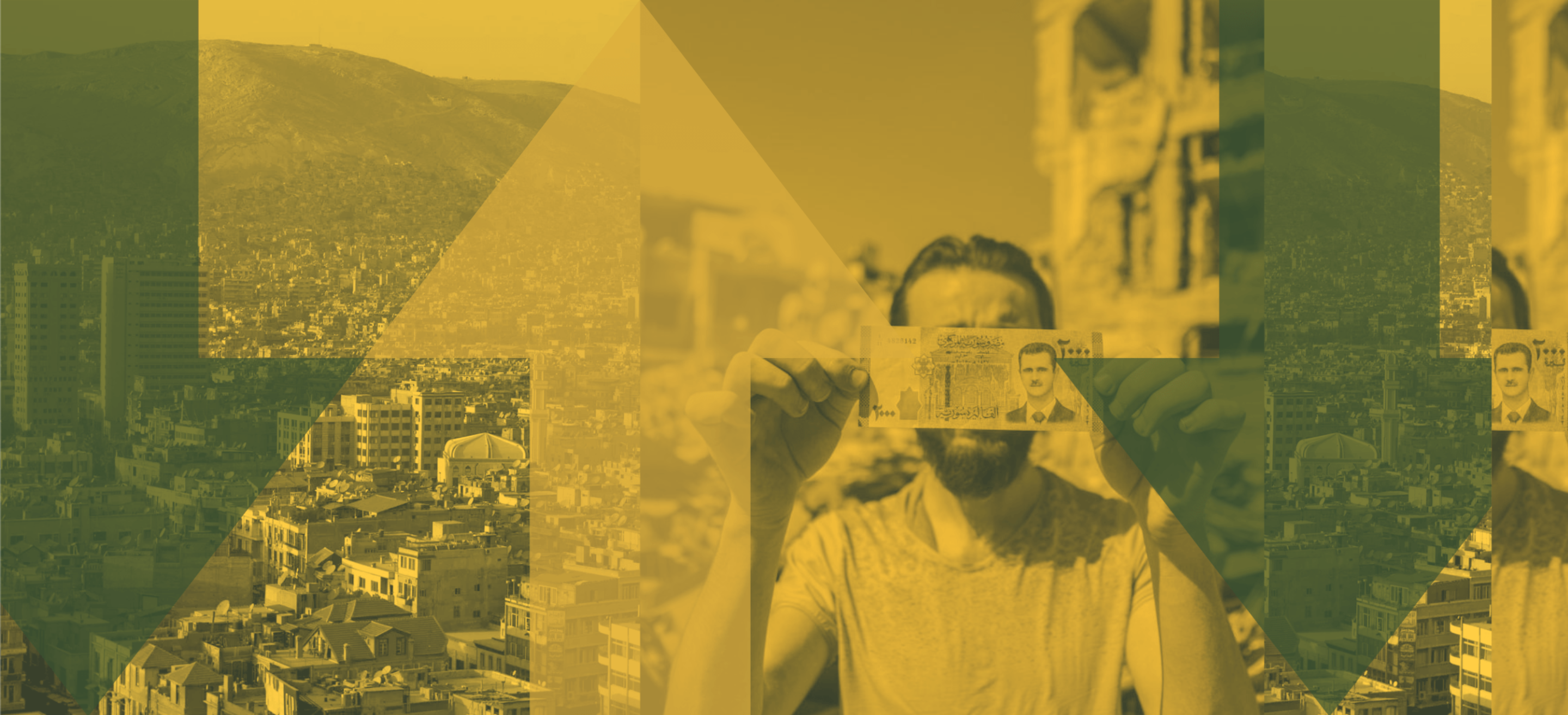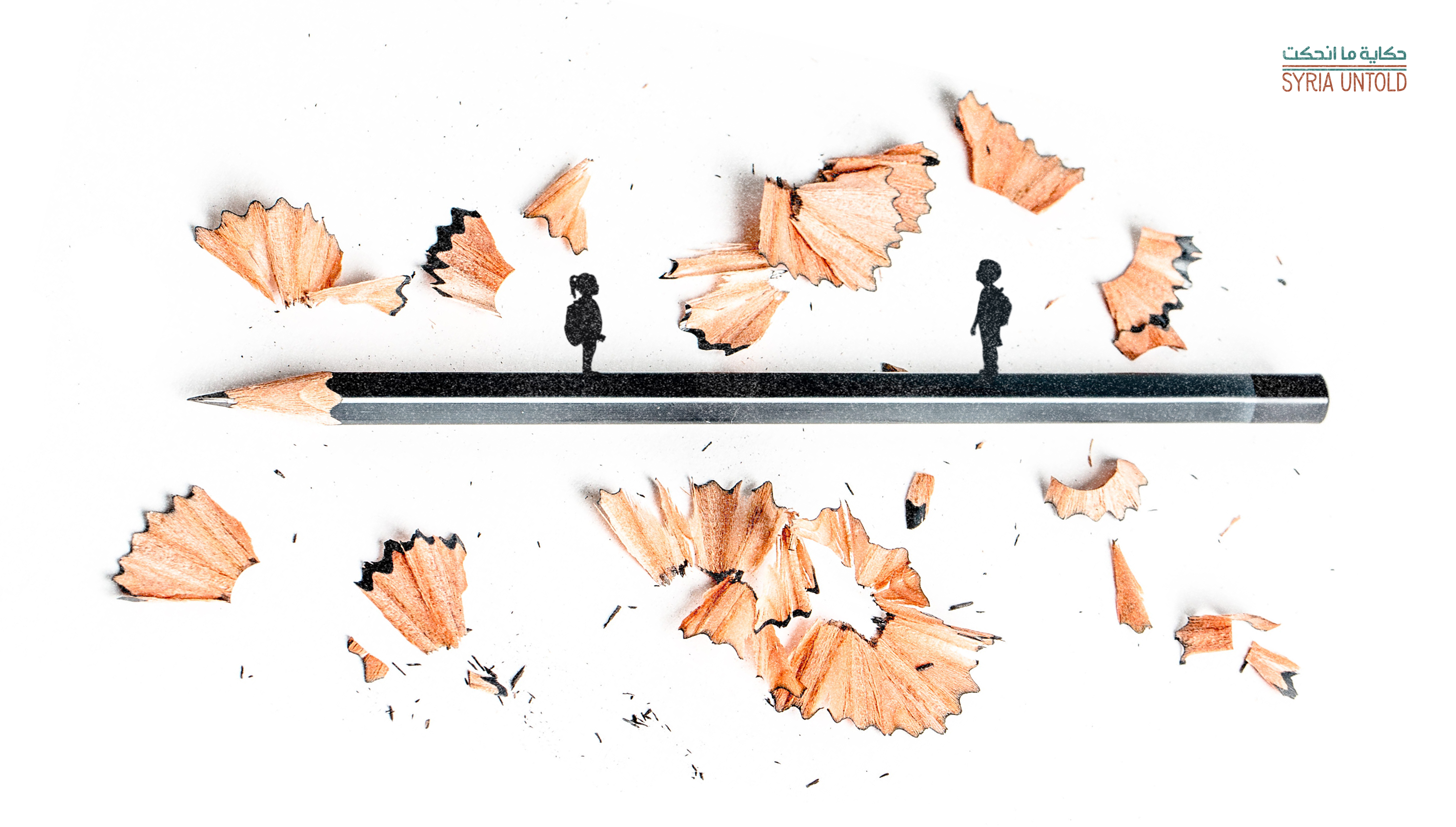Over 3.5 million Syrian refugees currently live in Turkey according to the U.N. High Commissioner for Refugees (UNHCR). They have arrived here in the past 13 years looking for safety and to start a new life away from their war-torn country. Throughout the years, new neighborhoods have formed, a new language has been learned, babies were born, grandmothers have died, school years started and ended for Syrian people in Turkey.
However, Turkey is yet to be a safe place for them. Racist attacks against Syrian people have escalated to new heights in the past month.
On 30 June in the city of Kayseri in Central Anatolia, an allegation that a Syrian man sexually abused a child sparked violence. As the allegation spread, the homes and workplaces of Syrians living in the city were targeted. The suspect was detained and arrested and the child was taken under state protection. A broadcast ban was imposed on the news.
In the following days hostilities quickly spread to other cities like Hatay, Adana, Bursa, Gaziantep, and Şanlıurfa. Many homes of Syrian people were attacked, workplaces were burned and vehicles were vandalized. On 2 July, 15-year-old Syrian boy Ahmet Handan El Naif was stabbed in Antalya. The next day he died in hospital.
Unfortunately, these attacks are not the first to target Syrians in Turkey. Similar attacks happened in July 2018 in İzmir and in August 2021 in Ankara, following arguments between Turkish and Syrian people and resulted in deaths and injuries. It is undeniable that the recent mass attacks bear a dangerous resemblance to past crimes against humanity in Turkey, such as the Istanbul pogrom, the Maraş massacre, and the Sivas massacre. Angry crowds marching, chanting racist slurs, calling for violence, breaking into homes, burning cars, destroying shops, and finally taking lives—these are the common denominators of hate crimes of Turkey’s past and present.
For those who remember, events of the past and present have similarities beyond petty racism and brute force. That is why rising racial tensions and violence once again left many concerned for the safety and well-being of Syrian people in Turkey.
To the margins of society
These racist attacks are the consequences of a broad attempt to normalize the socio-economic position of Syrian refugees as pariahs, stripped of their right to life, safety, and dignity. By relegating Syrians to the margins of society, perpetrators of these crimes aim to maintain a hierarchy where refugees are perpetually vulnerable and exploitable.
Left with a deep sense of peril and subjugation, like Kurds, Alevis, Greeks, and others before them, many Syrian families have already fled in fear. Those who remain ‘know their place’ in every aspect of social life. They understand that they will be excluded from social spaces, they should hide their identities and take up as little space as possible.
It is undeniable that the recent mass attacks bear a dangerous resemblance to past crimes against humanity in Turkey, such as the Istanbul pogrom, the Maraş massacre, and the Sivas massacre.
This marginalization is further exacerbated by the economic exploitation of Syrian refugees. Irrespective of previous education and skills, Syrian people mainly work in labor-intensive sectors such as textile, construction, agriculture, and mining. Working conditions and wages are so terrible that no one else wants to work in these jobs.
In June 2024 Ahmet, a 12-year-old Syrian boy, died in an elevator in the textile workshop where he worked. He got stuck between the elevator and the wall. It was later revealed that the elevator had been broken for a while.
In the textile workshop where the young boy died, a sign explains that workers are employed within the scope of the "Employment Support Project for Syrians under Temporary Protection and Turkish Citizens". This means that the employers were being subsidized by a project implemented by the Ministry of Family, Labor and Social Services and the Turkish Employment Agency, managed by the World Bank and financed by the European Union.
After the accident the sign was quietly taken down. Like Ahmet, many Syrian children are exploited as child-workers in workplaces with no inspection on health and safety regulations.
ILO states that more than 97 percent of Syrian workers are working informally. They are paid wages below the poverty line and are denied social security. Turkey implemented a work permit system for Syrian refugees in 2016, but employers, who are required to cover the associated costs, are often unwilling to do so. Forced to work informally, Syrian workers are left vulnerable to situations like unpaid wages, workplace accidents or occupational diseases and they have no means to legally pursue their rights.
As the Turkish economy deteriorates, the desperation of Syrian refugees is used to prop up struggling industries. This economic dynamic creates a vicious cycle where Syrian people are simultaneously needed and resented.
Another repercussion is the tremendous scope for arbitrariness towards Syrian refugees in Turkey. The most significant right granted to asylum seekers under temporary protection is the right to non-refoulement, which prohibits returning individuals to a country where they would face persecution.
As the Turkish economy deteriorates, the desperation of Syrian refugees is used to prop up struggling industries. This economic dynamic creates a vicious cycle where Syrian people are simultaneously needed and resented.
However, according to Human Rights Watch, Turkish authorities deported over 57,000 Syrians and other individuals between January and December 2023, despite their protected status. The majority of these deportations are falsely categorized as "returnees" or "voluntary" exits, undermining the very essence of the non-refoulement principle. There is a significant lack of monitoring and transparency in these processes, allowing perpetrators of crimes against Syrian people to act with impunity.
The origins of hate speech
Today, the average Turkish citizen is holding Syrian refugees and other migrants responsible for everything going wrong in the country. Hate speech against Syrian people is all over the media. This was not the case 12 years ago. As time went by, the prevailing anti-Syrian sentiment kept feeding off of the inappropriate international response, misinformation campaigns, as well as the contradicting interests of political parties in Turkey.
In 2011, the Turkish government announced an open-door policy, welcoming any Syrian who managed to reach Turkey. The decision was grounded in international law and driven by a humanitarian approach. According to the UNHCR, the number of newly registered Syrian refugees in Turkey, including new arrivals and births, was around 140,000 in 2012, 412,000 in 2013, 1,062,000 in 2014, and 881,000 in 2015. According to the International Rescue Committee, in 2015, almost 1 million refugees arrived in the European Union, while more than 3,500 tragically lost their lives making the treacherous journey.
Turkey Discovers Syrian Artists
30 December 2016
In March 2016, the Balkan route was closed to refugees and other migrants following official border closures in Macedonia, Croatia, and Slovenia leaving nearly 54,000 refugees and migrants, including thousands of Syrians, stranded in Greece. Also in 2016, Turkey started consistently tightening and frequently closing its border, leaving numerous Syrians in makeshift camps on the other side, desperately seeking entry.
The humanitarian crisis became a bargaining chip between the EU and Turkey. The 2016 EU-Turkey deal reduced the safety of Syrian lives into financial gains and transactional issues. Under the deal, Turkey pledged to take all necessary actions to prevent irregular travel from its territory to the Greek islands. Irregular arrivals on the islands could be sent back to Turkey. For every Syrian returned, EU Member States would accept one Syrian refugee from Turkey. In exchange, Turkey would receive EUR 6 billion to enhance refugee conditions and Turkish nationals would be granted visa-free travel to Europe.
The deal left the majority of the Turkish population with the idea that Turkey is being positioned as a buffer zone between the huge immigration wave and the EU borders. A general feeling of resentment towards the West prevailed among Turkish people. Experts, journalists and public figures advocating for refugee rights were branded as “agents of George Soros” or “EU’s lapdogs.”
The Turkish government used this resentment to legitimize its poor governance and arbitrary treatment of Syrian people, while Turkish President Recep Tayyip Erdoğan was portraying himself as a savior in the international arena and neglecting to address the root causes of domestic unrest. This deflection of responsibility both by the EU and the Turkish government only served to deepen the plight of Syrian refugees and heighten hostilities within Turkish society.
Since 2016, Turkey's vulnerabilities have significantly increased. The failed coup attempt in 2016 resulted in a two-year state of emergency, during which 125,678 government officials were dismissed, and many were arrested. Authoritarianism rose further after the parliamentary system was replaced with a presidential system in 2017, granting the president legislative power through decrees and undermining the independence of the judiciary.
The COVID-19 pandemic in 2020 exacerbated existing vulnerabilities. Following the 2023 earthquake, over 50,000 people died, and 2.7 million were displaced. The ongoing economic crisis, which began in 2018, led to a record depreciation of the Turkish lira and extremely high inflation. As the crisis deepened, poverty levels soared, and living conditions worsened for everyone in Turkey.
Despite Syrian people being affected as much as Turkish citizens by the worsening living conditions, they are being scapegoated and subjected to hatred.
Despite Syrian people being affected as much as Turkish citizens by the worsening living conditions, they are being scapegoated and subjected to hatred.
Misinformation campaigns initially focused on the so-called ‘privileges’ enjoyed by Syrian refugees, particularly concerning subsidies. The public was misled about the amount and scope of the aid provided. The government failed to accurately inform people. Between November 2016 and December 2023 those meeting certain criteria received financial aid under the scope of the Emergency Social Safety Net Programme.
In 2023 the amount was TL 300 TL (EUR 14,6) per person per month. This aid was distributed via the Kızılay Card, which allowed withdrawals from Ziraat Bank ATMs, creating the illusion that the government was funding this support. In reality, the funds came entirely from the EU. The EU programme ended in December 2023 and the responsibilities were handed over to the Turkish authorities.
Now, Syrian refugees who meet the criteria receive a monthly aid of TL 230 (EUR 6,39) per person per month through Türk Kızılay, again funded by the EU. This fact was concealed to bolster the narrative of ‘our strong and great state’, ‘the Turkish state welcomes Muslims’, and ‘the Turkish state is the protector of the Middle East’.
Consequently, Turkish citizens believed that ‘money collected from our taxes is being spent on refugees’. The reality, however, is that Syrian refugees receive minimal aid, and most work unregistered and under severe exploitation.
Over time, endless misinformation campaigns and propaganda became instrumental tools to increase racial tensions and divide the communities. So much so that, after the 2023 earthquake, fake news about Syrian people looting houses and aid trucks spread. As if surviving the earthquake and enduring the pain of losing family members was not enough, Syrian people were tortured in the earthquake zone. Prior to the 2023 presidential and general elections, Turkish opposition candidates used nationalist and racist rhetoric to exploit the fears of a population struggling with the economic crisis. The political landscape had become so blurred that the leader of the main opposition party CHP Kemal Kılıçdaroğlu, a self-proclaimed social democrat, became a presidential candidate and campaigned alongside far-right leader Ümit Özdağ with the slogan "we will send refugees and migrants back."
Economies of Syria: Four Heads for a Weary Body
28 June 2024
In response to the opposition’s campaigns, Erdogan pledged to return one million Syrians within a year, despite this policy being widely regarded as unrealistic and illegal. Erdogan won the run-off election receiving 52.18 percent of the vote while Kemal Kılıçdaroğlu gathered 47.82 percent.
Throughout the election, no political party spoke up for the rights of the Syrian people, with both ends of the political spectrum spreading disinformation. The left, especially the center-left CHP, failed immensely, leading its voters into a serious moral dilemma.
A roadmap beyond identity politics?
It has been exactly ten years since the temporary protection status has been granted to Syrian refugees in Turkey. This status was meant to provide Syrians with access to health care, education, the labor market, social assistance, and interpretation services while guaranteeing non-refoulement. It is evident that the mechanism in place is failing to fulfill its promises.
There is a dire need to move beyond this prolonged temporary state and develop a clear roadmap for the future, both for Turkish society and for Syrian refugees. The current atmosphere in Turkey has no indication of what the future holds for the Syrian people. If deported, many Syrian refugees face the risk of arrest upon return, and the overall conditions in Syria make returning impossible for most. This underscores the critical necessity for long-lasting solutions and policies as a direct consequence.
Although long-lasting and constructive integration policies seem far from the reality at the moment, as the people of Turkey, we have a responsibility to understand that there is an immediate need to drastically change our stance in order to leave the past behind and stop being the perpetrators. No solution can be formed in this climate of misinformation, fear and exploitation.
The need to address the plight of Syrian refugees in Turkey extends beyond the realm of a few political elites. It is imperative for the broader public to engage with this issue, forming a well-informed public opinion that sees beyond misinformation and identity politics.
Turkish people must take responsibility to seek out accurate information and challenge xenophobic narratives. Additionally, there is an urgent need to establish channels for dialogue both within Turkey and with the international community. A collaborative international effort is essential to develop legally binding, sustainable and humane solutions.
Only through a concerted and informed approach we can hope to reimagine progress, peace and dignity in this society.









